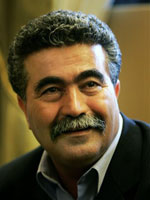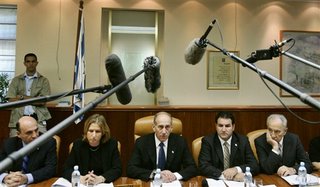
The month long fighting in the Middle East finally ceased on Monday with the UN mediated ceasefire under its resolution 1701 calling for cessation of all military and armed offensives in the territory of Lebanon. With the ceasefire came a collective sigh of relief for the millions displaced by the month long conflict and finally it seems that those displaced will return home – or whatever is left of them. The world has condemned the inaction of the UN in bringing all parties on board fast enough and to broker a ceasefire earlier than when it finally came through. Such ineffectiveness on part of the UN will further make it look like a slumbering organization that takes decisions that are too little too late and lacking credibility in the hearts and minds of many people in the world. The repeated failures to act in Darfur and come out with a resolution on Iran and North Korea have sullied the global body's standing. Further, with the delay in taking action in Lebanon they have further pushed themselves to near redundancy. While, the UN remains the largest humanitarian organization in the world, its influence in the world of politics and international affairs has diminished post the Cold War.

However, the biggest loss in the low-grade war that one witnessed in the Middle East has been undoubtedly Israel. Israel, under Ehud Olmert, started the war on a strong footing with a justified retaliation to the capture of its two soldiers by Hezbollah militants. Any country must have the right to protect its territorial integrity and its citizens. This is exactly what the Israelis did. Unfortunately, in a bid to boost his credentials as a Sharon acolyte and a tough premier in his mentor’s mould, Olmert went overboard with the relentless strike on Beirut, Tyre and other Lebanese towns and infrastructure. The massacre of 28 children in Qana further isolated Israeli action in the eyes of the world as reprehensible.
There are many in the Israeli Right that are now asking for the Defense Minister Amir Peretz’s (the Labor Party leader and known dove in the current establishment) resignation following the inability of the IDF to crush Hezbollah emphatically. Also, by the end of the ceasefire, the Israeli army’s twin objective of unconditionally rescuing its two kidnapped soldiers and the decimation of Hezbollah remained unfulfilled. This while the standing of Hezbollah and that of its leader Hassan Nazarallah has been hailed as the custodians of the so-called ‘Arab pride’. Not only could the Hezbollah mange to ward of all Israeli incursions, they retained their ability to hit hundreds of rockets into Israel till the ceasefire came into effect. However, all the talk of how Hezbollah and Nasrallah have been able to restore Arab pride in the region, has been put to perspective by New York Times columnist
Thomas Friedman. Friedman, rightly points out to the fact that the day after the ceasefire, many Lebanese are going to look at their crushed homes and lives and ask whether this was worth the ‘pride’ that Hezbollah claims to be fighting for. Hezbollah has promised to rebuild all lost homes and provide shelter to returning residents in the South of Lebanon and Beirut. But surely there will be many who will ask, why bring on death and destruction voluntarily in order to back a group that is purely in the proxy war against Israel at the behest of Syria and Iran?
This war has also been the first of sorts in which a proxy war has been waged by two allies for their ‘big brothers’. The US intended to back this war and Israel on the pretext of getting back at Iran and Syria for their confrontationalist policies and their role in the insurgency in Iraq. Syria and Iran, on the other hand, are keen to demonstrate their larger role in the Middle East and world politics. The speech
 by Syrian President Bashar al-Assad to Arabic
by Syrian President Bashar al-Assad to Arabicjournalists on Tuesday was more a victory speech and a tacit acknowledgement of the role Syria played in helping Hezbollah in its fight against the Israelis. The Syrians and Iranians' determined backing of Hezbollah in terms of arms and monetary support helped them fight Israel, the strongest army in the Middle East. The US cannot engage in another war in the region as it is bound militarily, economically and morally with its twin wars in Afghanistan and Iraq. It is looking at allies that can further its cause for the 21st Century to become ‘Freedom’s Century’, a euphemism one wonders that actually means American hegemony. So the future of the Middle East will see more proxy wars and low-grade incursions that will be used to ‘settle scores’. With peace looking like a distant dream, the war in the past months has certainly outlined a previously unknown fact, that Hezbollah is a force to reckon with and that the dominance of the Israelis in the region, although undisputable, is at the same time vulnerable with foes like Hezbollah and Hamas and backers like Syria and Iran.

1 Comments:
At 1:12 PM, Anonymous said…
Anonymous said…
hi dr. karan,
nice write up...very good analysis and great understanding - as always!
The UN is dying a natural death and needs to be resurrected if it wants to claim its lost power, prestige and glory...
sure there is more to the war than what meets the eye!
PS: sorry if i may sound ignorant... havent kept up with the news lately.... just wanted to know whether the 2 soldiers were returned safely to israel?
jahnvi
Post a Comment
<< Home